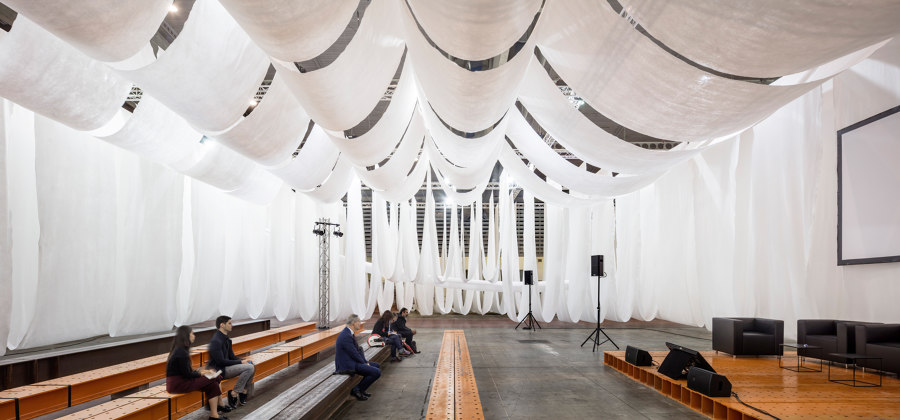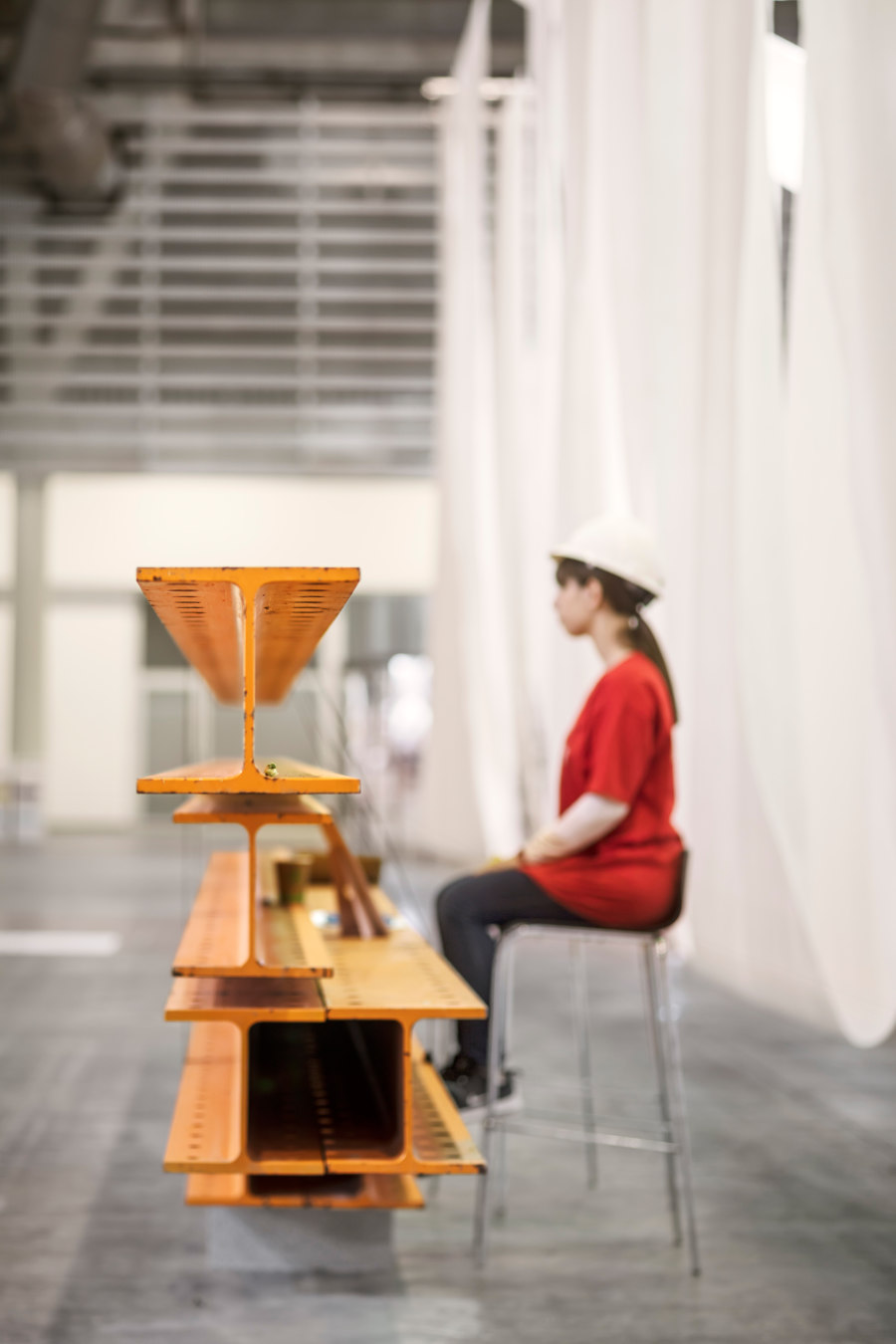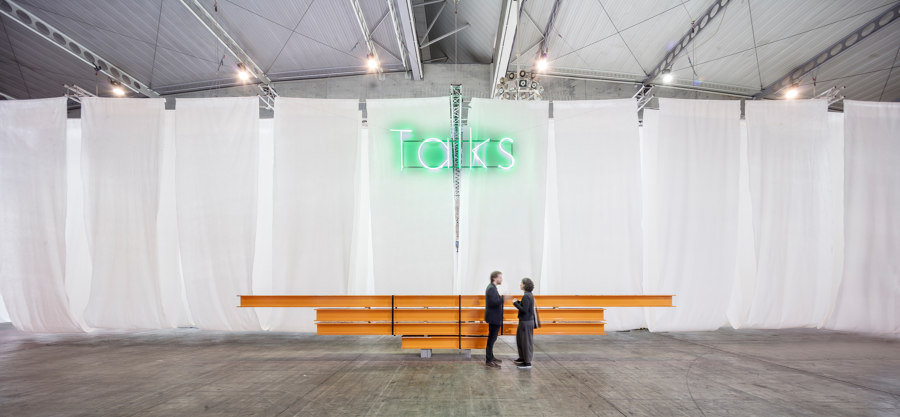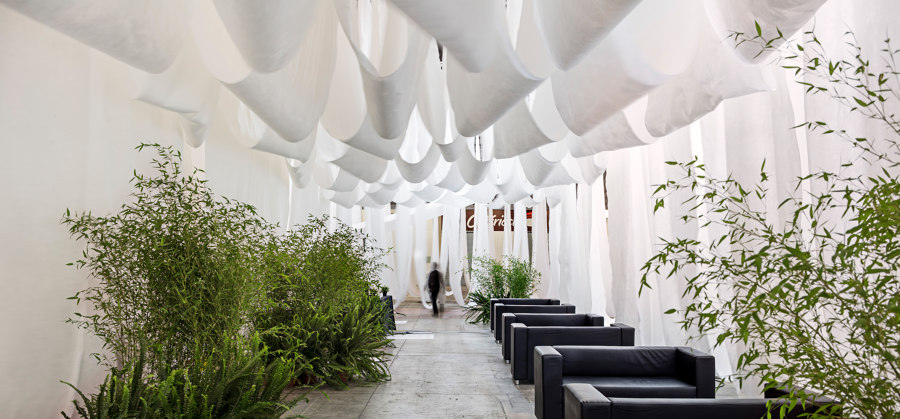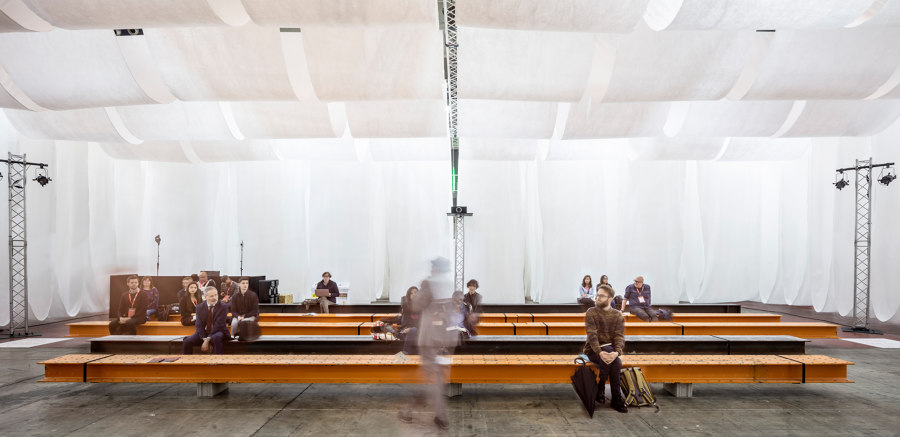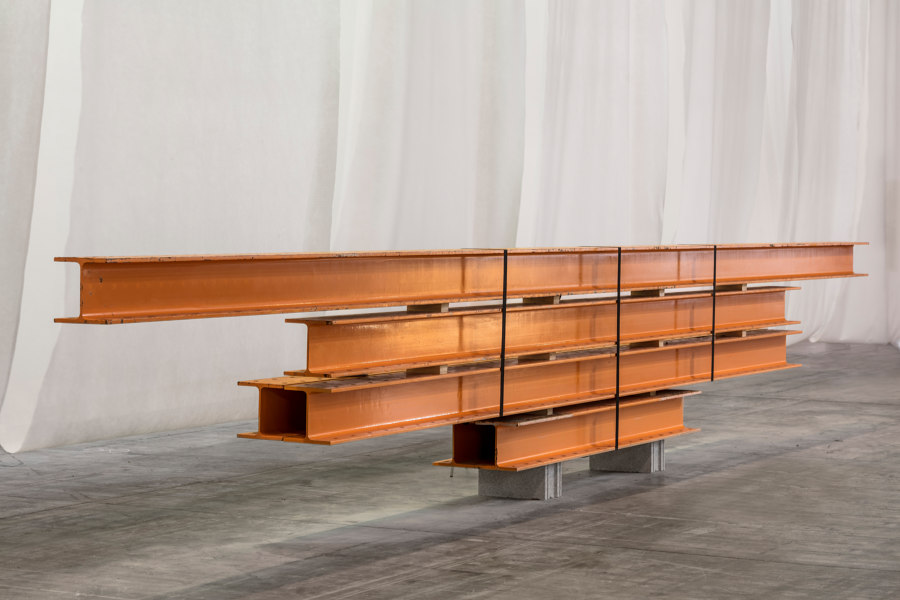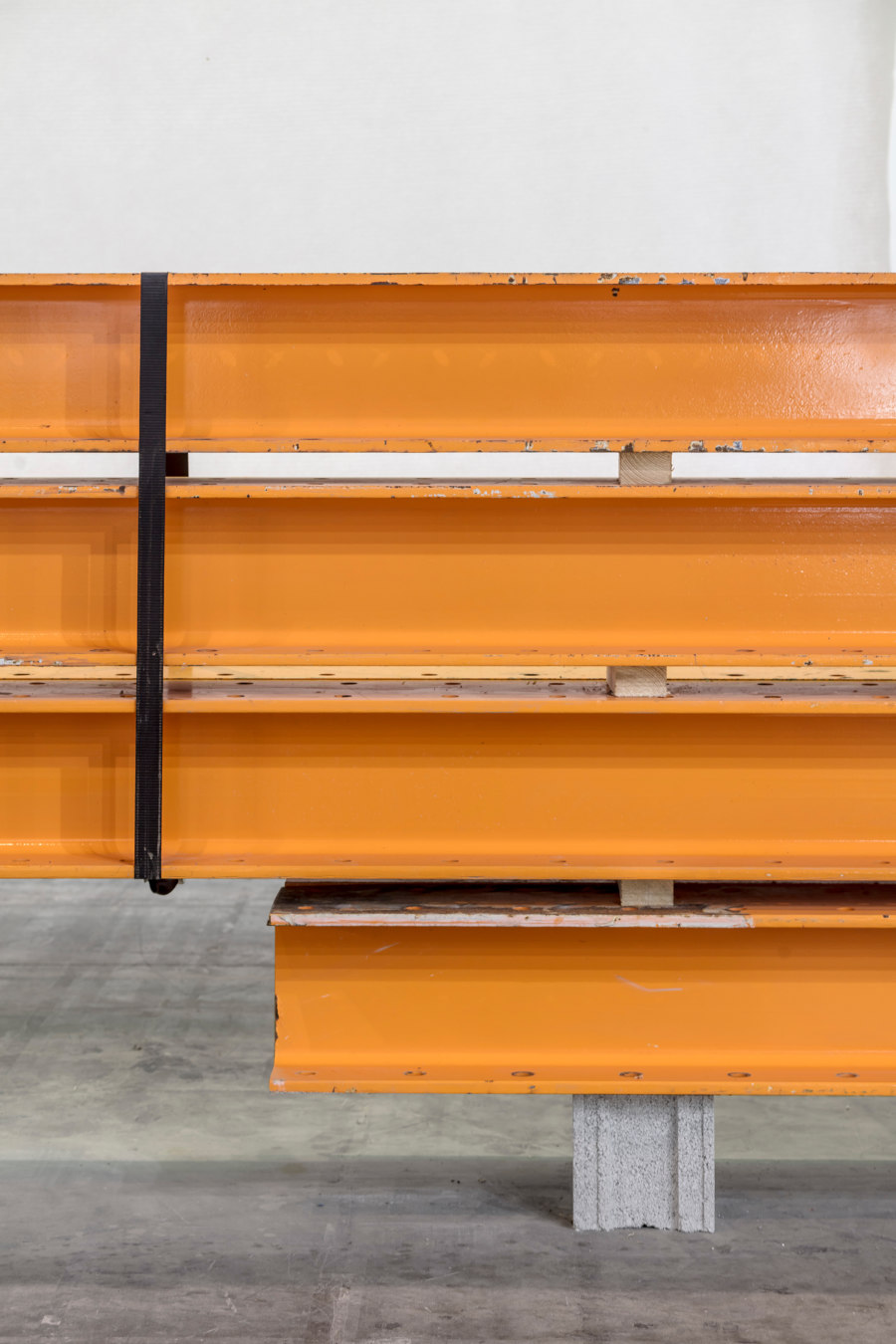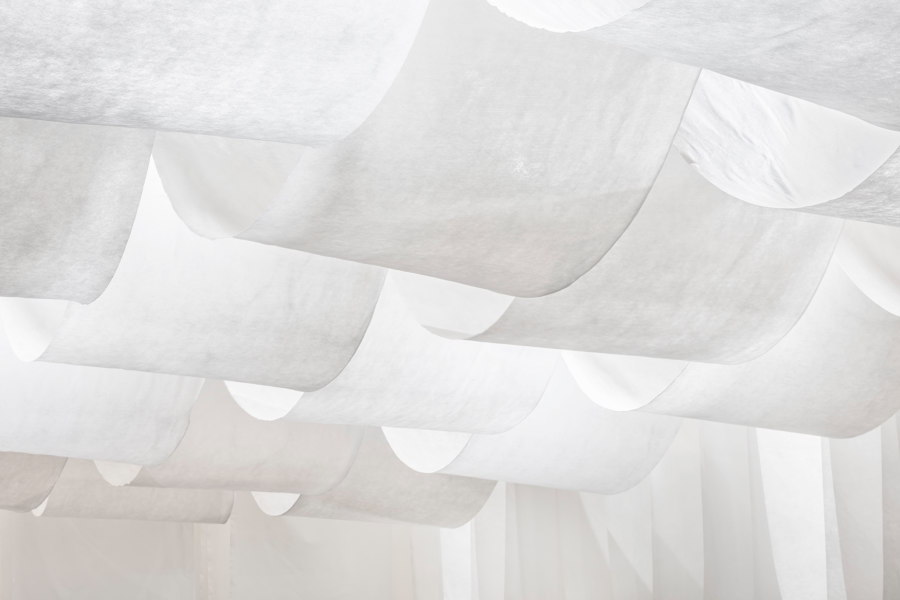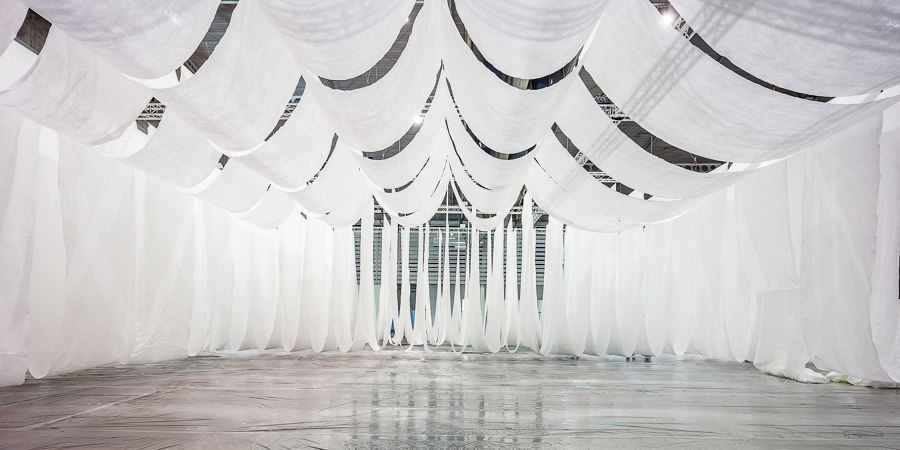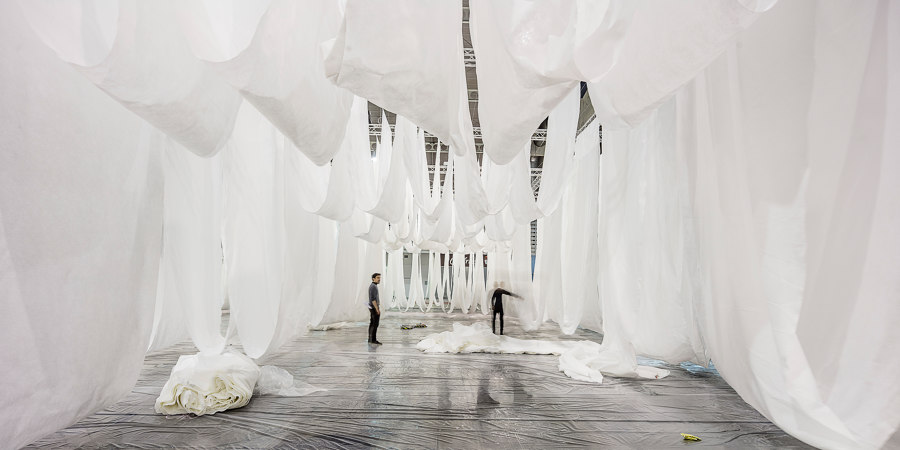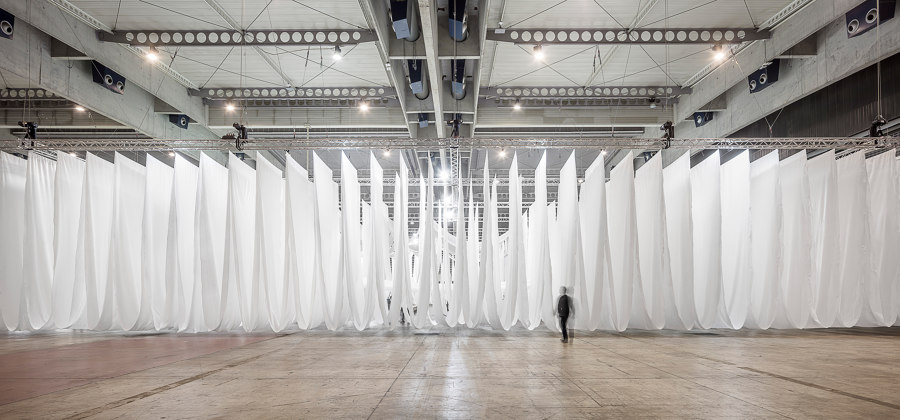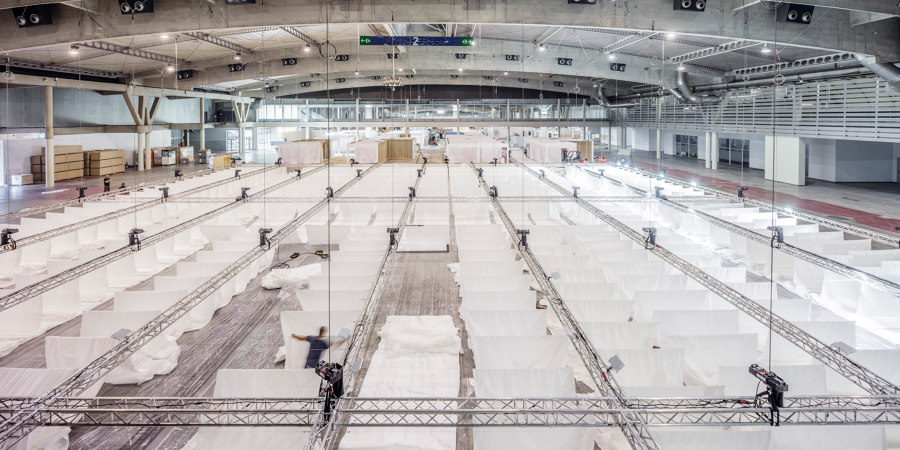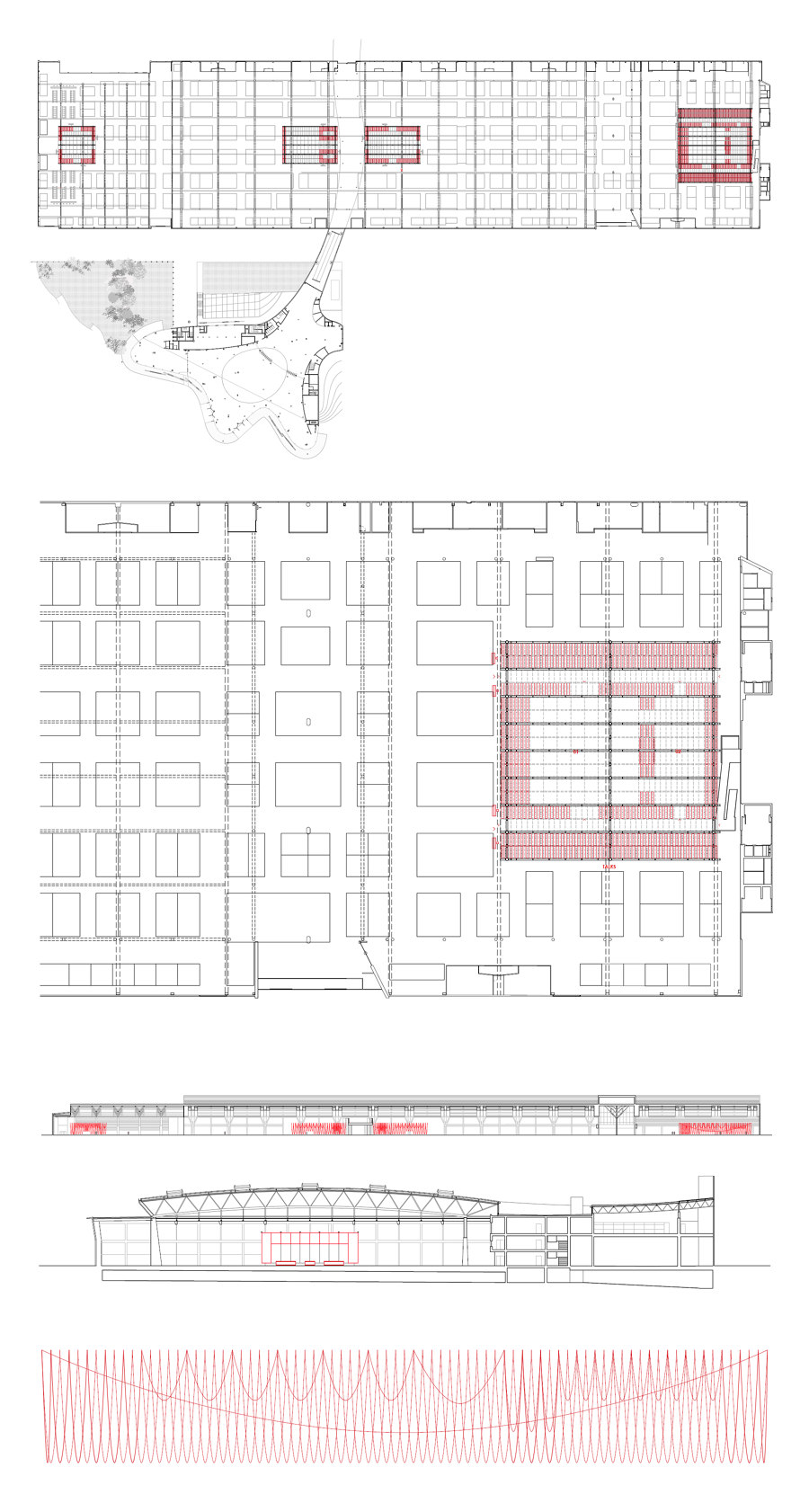From May 14 to 17 Fira Barcelona has hosted the 21st edition of Barcelona Building Construmat (BBConstrumat), a biennial show that brings together the leading companies in the construction sector. This year, coinciding with its 40th anniversary, the show, in addition to betting on innovation and digitalization, wanted to promote sustainability and the circular economy as keys to the future. A clear example of this is the design of the Josep Ferrando Architecture studio for common spaces and thematic areas –Future Arena, Talks Arena and Meetings Arena.
A total of 34,000 m2, dedicated to exhibitors, technological advances, debate and business contacts, for which Ferrando has raised an ephemeral architecture that, according to the unique compositional dynamics that originates his works, part of a system that solves in a logical and economic way the problems he faces, opting for recycling and reuse as a key concept.
With only two materials, Barcelona architect Josep Ferrando has managed to design seductive, unique, functional spaces that meet circular economy criteria. On the one hand, geotextile has been used, industrial fabrics whose standard format is 2.20 meters wide by 200 m long, and that will be reused for roof waterproofing. And on the other, huge metal beams whose previous function has been to facilitate the transport of the prefabricated pieces that are being used for the construction of the Temple of the Sagrada Familia in Barcelona and that will return to their original function once BBConstrumat ends.
In addition to a firm commitment to the use of resources, Ferrando's project conveys what he defines as a universal construction tautology. “Almost all spaces and almost all building materials work in two ways: hung, therefore tensile or stacked, that is, compression. Two ways of working, by traction or compression, that have been historically present in architecture, from classical to contemporary buildings. Two ways of working in which the lighter elements, such as textiles, are contrasted with heavy elements, such as steel. The dialectic between what is light versus what is heavy, what is transparent versus what is opaque ... has always been present, and it is what also wants to convey this intervention. ”
This is why, beyond the firm sustainable approach, the Josep Ferrando Architecture project for the common areas of BBConstrumat 2019, in coherence with his conceptual discourse, basically contains two materials. One, the geotextile, which works by traction and that hangs from 6 meters from a repeated structure of porches, generates translucent waves of different heights that float to the height of 45 cm and that shape and regulate the space, recreating a kind of cave which, in turn, houses small cavities inside.
While, the other material are metal beams that work under compression, are stacked at different levels and set up furniture - 45 cm benches or 75 cm tables, among other pieces. In short, an ephemeral original architecture, responsible for the planet and that dramatizes the historical language of construction and therefore, of architecture.
Design Team:
Josep Ferrando Architecture
